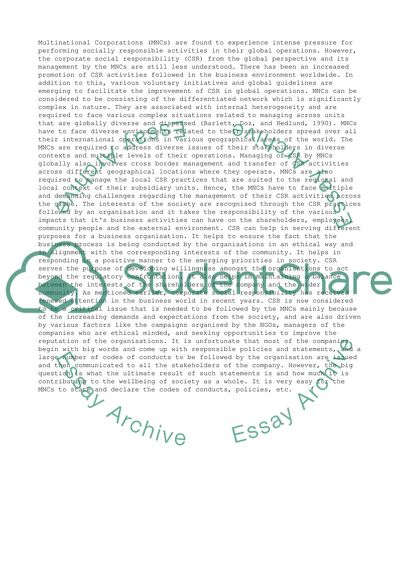Cite this document
(“CSR and challenges faced by MNCs Essay Example | Topics and Well Written Essays - 2500 words”, n.d.)
CSR and challenges faced by MNCs Essay Example | Topics and Well Written Essays - 2500 words. Retrieved from https://studentshare.org/business/1402625-global-business-environment
CSR and challenges faced by MNCs Essay Example | Topics and Well Written Essays - 2500 words. Retrieved from https://studentshare.org/business/1402625-global-business-environment
(CSR and Challenges Faced by MNCs Essay Example | Topics and Well Written Essays - 2500 Words)
CSR and Challenges Faced by MNCs Essay Example | Topics and Well Written Essays - 2500 Words. https://studentshare.org/business/1402625-global-business-environment.
CSR and Challenges Faced by MNCs Essay Example | Topics and Well Written Essays - 2500 Words. https://studentshare.org/business/1402625-global-business-environment.
“CSR and Challenges Faced by MNCs Essay Example | Topics and Well Written Essays - 2500 Words”, n.d. https://studentshare.org/business/1402625-global-business-environment.


